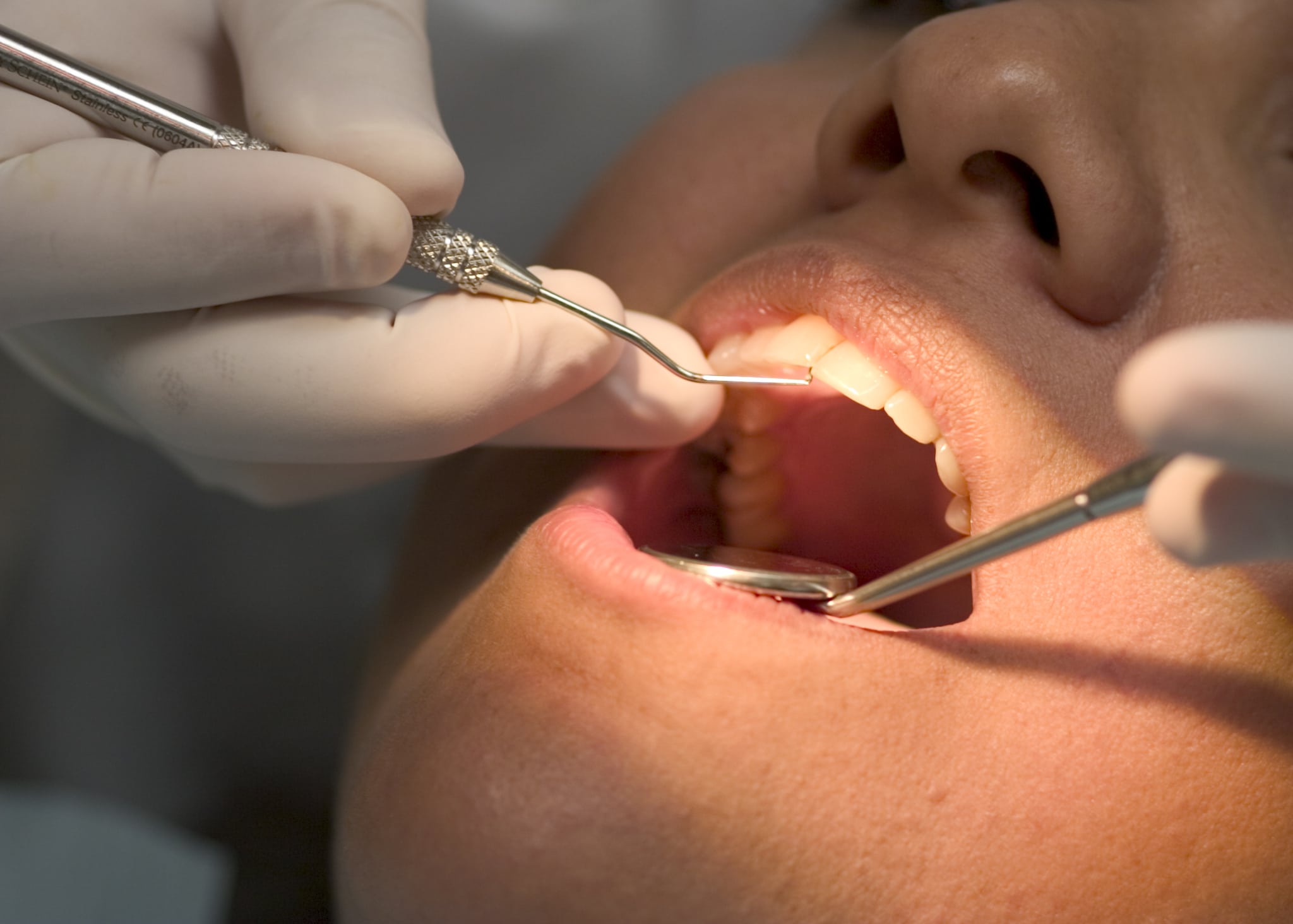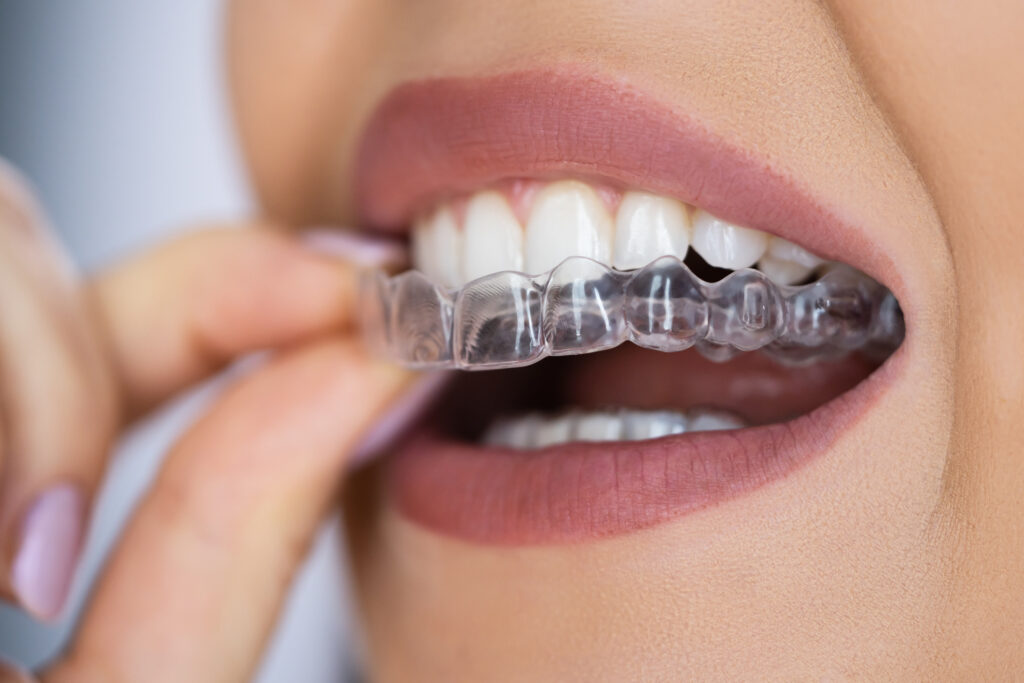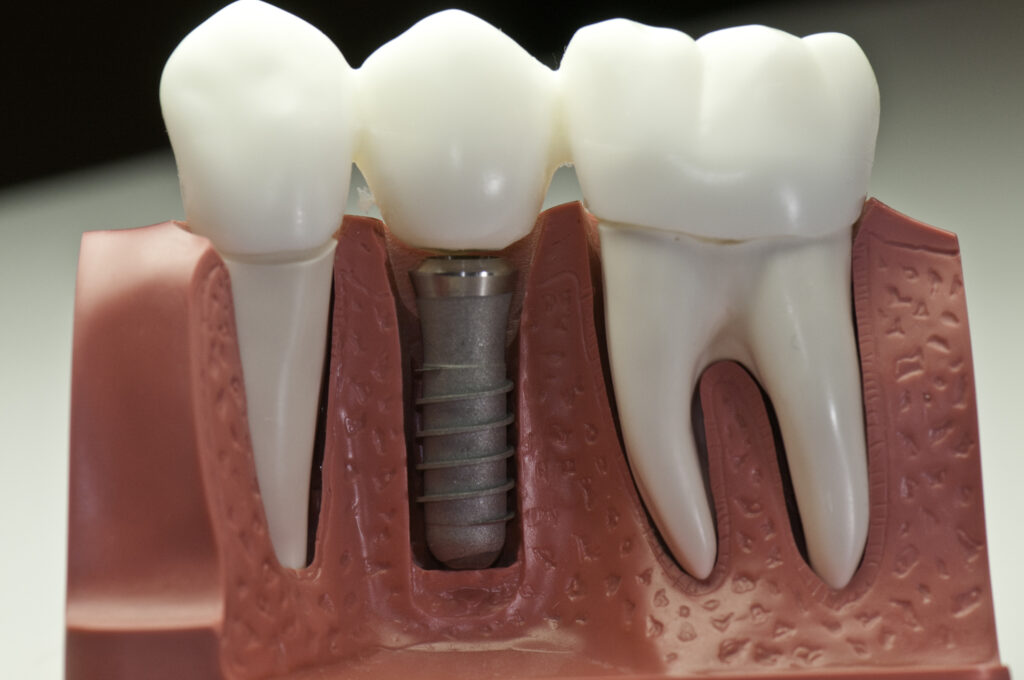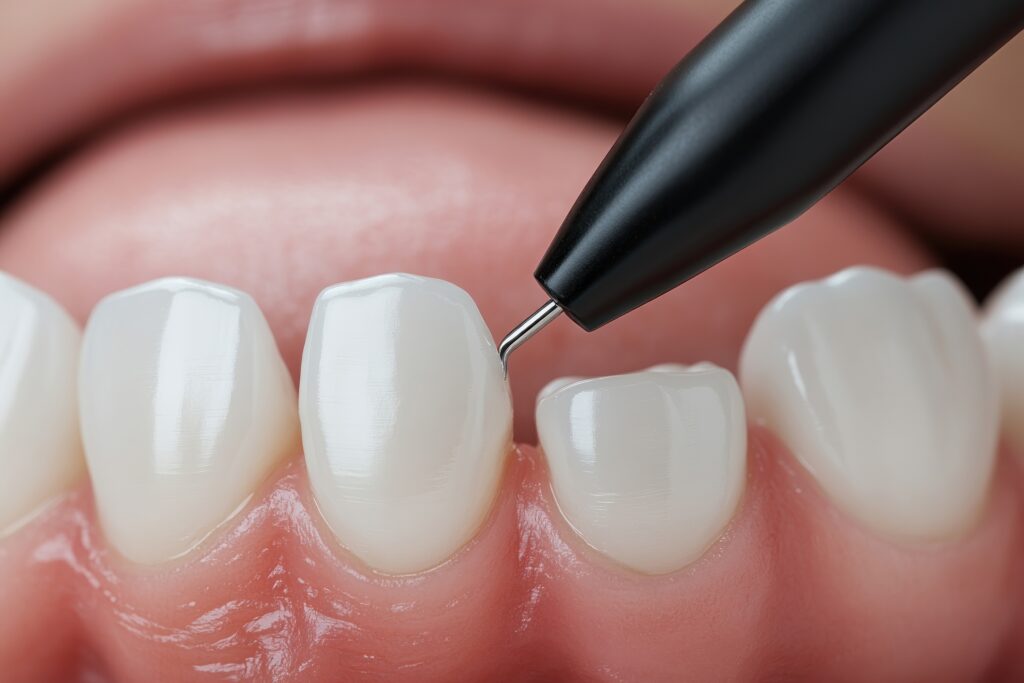Do you want to keep your teeth healthy for many years to come?
Regular dental check-ups are probably one of the most neglected (but most important) parts of your health routine. When’s the last time you thought about your dentist before something was already wrong?
Truth be told….
A “fix it when it breaks” mentality towards your teeth is costing you a lot more than just money. Recent statistics show that 25.9% of adults between the ages of 20-44 have untreated dental caries (i.e. cavities) as of 2022.
Fortunately for you, getting regular dental check-ups is how you prevent most problems before they start. Best of all, preventive dental care is often 100% covered under most dental plans.
What you’ll learn:
- Why are Regular Dental Check-Ups Important?
- What are the benefits of Regular Check-Ups?
- How often should I visit the dentist for regular check-ups?
- What happens during a dental check-up appointment?
Why are Regular Dental Check-Ups Important?
Let me blow your mind for a second….
Regular dental check-ups are so much more than just brushing off plaque and tartar buildup. They help you avoid major health issues in the future.
The best part?
It works. People who get regular preventive dental care are far less likely to experience serious oral health problems. In fact, the benefits extend way beyond just your mouth.
When you visit your dentist for regular check-ups, they’re checking for far more than just cavities. Oral health is an integral part of overall health, and your dentist is one of your front-line health workers. They’re trained to spot the early warning signs of gum disease, oral cancer, and other oral conditions before they have the chance to affect the rest of your body.
These days most dental professionals offer advanced treatments such as hand-crafted dental veneers as part of their comprehensive preventative dental care services that cover both the health and aesthetic aspects of your smile.
If you’re searching for a trusted Dripping Springs dental clinic, choosing a practice that focuses on preventative care, early diagnosis, and patient education can make all the difference. A reliable local dental team can help you stay ahead of potential oral health issues with personalised check-up schedules and modern treatment options tailored to your needs.
New research suggests that receiving at least one preventive dental visit within a three-year period may lower the risk of contracting ventilator-acquired pneumonia by up to 22%. That’s a pretty significant impact for something as simple as a routine dental cleaning.
What are the benefits of Regular Check-Ups?
Think dental check-ups are just for when you have a cavity or a sore tooth?
Truth be told….
Regular dental visits give you a whole host of benefits that most people never even consider.
- Catch issues early: Your dentist can detect problems while they’re still small and easy to treat. A small cavity that would cost $150 to fill today might turn into a $1,500 root canal if you wait. It’s really that simple.
- Check up on your overall health: Did you know your mouth is connected to the rest of your body? Gum disease has been linked to heart disease, diabetes, and even pregnancy complications. Your dentist might be the first line of defense against all of them.
- Screen for oral cancer: Oral cancer is a serious condition that affects thousands of people every year. Catching it early greatly improves your chances of survival. The good news? Your dentist can screen you during each routine visit – something you can’t do at home.
- Get a professional cleaning: Even if you’re a rockstar at brushing and flossing (and let’s be honest, most of us aren’t), you still need professional cleanings. Dental hygienists have special tools that get rid of tartar that regular brushing and flossing can’t touch.
How often should I visit the dentist for regular check-ups?
Hold on to your hats….
The old “twice a year” rule is no longer true for everybody. New studies show the average adult requires routine preventative dental care between 1-3 times a year, depending on their individual risk factors.
Here’s a quick guide on how to figure out how often you need to visit:
- Low risk: Good oral health, no gum disease – twice yearly visits are fine
- Moderate risk: Some risk factors like cavity history – every 4 months
- High risk: Diabetes, heart disease, active gum disease – quarterly visits
Your dentist can help you determine your personal risk level and set you up with the right schedule.
What happens during a dental check-up appointment?
Let’s go through a typical dental check-up together….
The Exam
First, your dentist will thoroughly examine your teeth, gums, tongue, and the inside of your mouth. They’re looking for:
- Signs of tooth decay
- Gum disease symptoms
- Oral cancer indicators
- Problems with fillings, crowns, or other work
- Bite and jaw alignment issues
Cleaning
Then your dental hygienist steps in to:
- Remove plaque and tartar buildup
- Polish your teeth
- Floss between all your teeth
- Apply fluoride treatment (if needed)
X-Rays (if needed)
Depending on your risk factors and how long it’s been since your last set of X-rays, your dentist may take new ones to look for issues that aren’t visible in the regular exam.
Treatment Plan
If any problems are found, your dentist will discuss treatment options and recommended next steps. They can help you prioritize what needs to be done first.
The Real Costs of Missing Check-Ups
Truth be told….
People avoid regular dental check-ups because they think it’s going to cost them a lot of money. They could not be more wrong.
A routine cleaning may set you back $150-250 dollars. Skip it and end up with a serious dental issue? You could be looking at thousands in treatment fees.
Recent stats reveal that 40% of adults experienced mouth pain at some point during the last 12 months. A whole lot of these problems could have been prevented by regular dental check-ups.
The math is pretty clear-cut:
- Emergency visits cost 3-5x more than preventive care
- 11.7 million working days are lost each year due to dental issues
- People without regular dental care are much more likely to need extractions and dentures
Get the Most From Your Visit
Want to get the most bang for your buck for every dental visit?
Here’s how to prepare to make the most of each visit:
- Brush and floss before your appointment (don’t skip your visit if you forgot)
- Make a list of any medications you’re taking
- Note any changes in your health since your last appointment
- Ask questions about anything that concerns you
- Follow through with all recommended treatment.
Don’t be embarrassed if you’ve let a few years slip by since your last dental visit. Dental care professionals have seen it all and are there to help not judge.
Wrapping it Up
Regular dental check-ups are one of the best things you can do for your teeth. They help you:
- Detect problems early when they’re cheaper and easier to fix
- Maintain healthy teeth and gums throughout your life
- Support your overall health and wellbeing
- Prevent painful and expensive dental emergencies
The bottom line? Preventive dental care is effective. It saves you money, keeps you healthier, and offers peace of mind.
Don’t wait until you’re in pain to visit the dentist. Schedule your next check-up now and start taking care of your smile for the long term.
Disclaimer
The information provided in this article, Exploring the Benefits of Regular Dental Check-Ups, is intended for general educational and informational purposes only. It does not constitute professional dental, medical, or healthcare advice, diagnosis, or treatment. Readers should not rely solely on the content presented here when making decisions about their oral health.
Always seek the advice of a qualified dentist, dental hygienist, GP, or other appropriately trained healthcare professional regarding any questions or concerns about your dental or overall health. Individual circumstances vary, and recommendations may differ based on personal medical history, risk factors, and clinical findings.
References to statistics, research findings, insurance coverage, or treatment costs are provided for general context and may vary by region, provider, and over time. Mention of specific services, treatments, or local clinics is for illustrative purposes only and does not constitute endorsement or recommendation by Open MedScience.
Open MedScience makes no representations or warranties regarding the completeness, accuracy, or timeliness of the information contained in this article. Readers assume full responsibility for any actions taken based on the content provided.
home » blog » dentistry »



